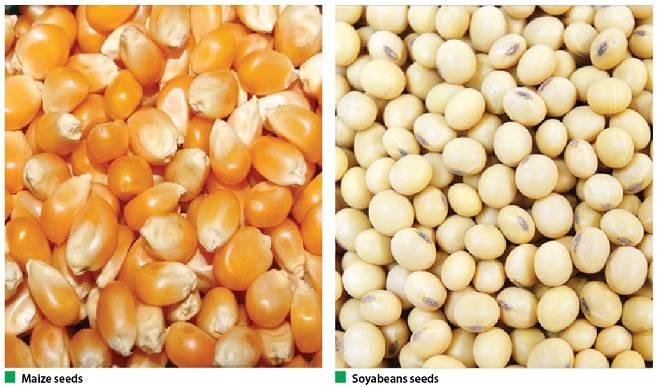81, 000 tons of certified seeds ready for farmers – NASC
The National Agricultural Seeds Council, NASC, has said that about 81,000 metric tons of certified seeds of rice, maize, sorghum, soyabean, cowpea, millet, groundnut, wheat, sesame and potato are ready for deployment and purchase by farmers across the country. The Director General, of NASC, Dr Phillip Ojo stated this in a zoom – virtual conference […]

File: Seeds
The National Agricultural Seeds Council, NASC, has said that about 81,000 metric tons of certified seeds of rice, maize, sorghum, soyabean, cowpea, millet, groundnut, wheat, sesame and potato are ready for deployment and purchase by farmers across the country.
The Director General, of NASC, Dr Phillip Ojo stated this in a zoom – virtual conference – interview with journalists.
He said the agency was doing all within its reach to ensure that seed sector related activities are sustained and promoted even in the midst of the pandemic.
He called on the state governments to give seeds as palliative to smallholder farmers.
“Today as I speak with you, the industry have available at the disposal of accredited seed companies across the country about 81,000 metric tons of certified seeds of rice, maize, sorghum, soyabean, cowpea, millet, groundnut, wheat, sesame and potato that are ready for deployment and purchase by farmers for the production of food and raw materials for Nigerians,” he said.
He lamented that going back to the field for seed sector operatives has become a challenge as the measures put in place to stop the spread of the virus are impacting negatively on the activities of the sector.
“The urgent need to replace depleted food stock as a result of the massive purchase and consumption is now starring us all in the face and we can only achieve this using high quality seeds.
“To ensure that we clearly understand the challenges and impact of the COVID-19 on the seed sector, the NASC together with Wageningen University and Sahel Consulting introduced a survey (quick scan survey) commencing from the month of April to access first-hand the impact of COVID -19 on the seed sector,” he said.
According to the DG, the scan highlighted key areas of alert that are mostly impacted by the COVID-19 and also recommended coping strategies to guide future actions to ensure continue supply of quality seeds to farmers.
He also expressed sadness that the COVID-19 government measures to curtail the spread has “negatively impacted on the movement of seed companies and farmers to point of sales/agro-dealers, to informal markets.
He said it has also negatively impacted on the the production and supply of early generation seed and more importantly the quality assurance activities including seed field inspection and Laboratory testing.
